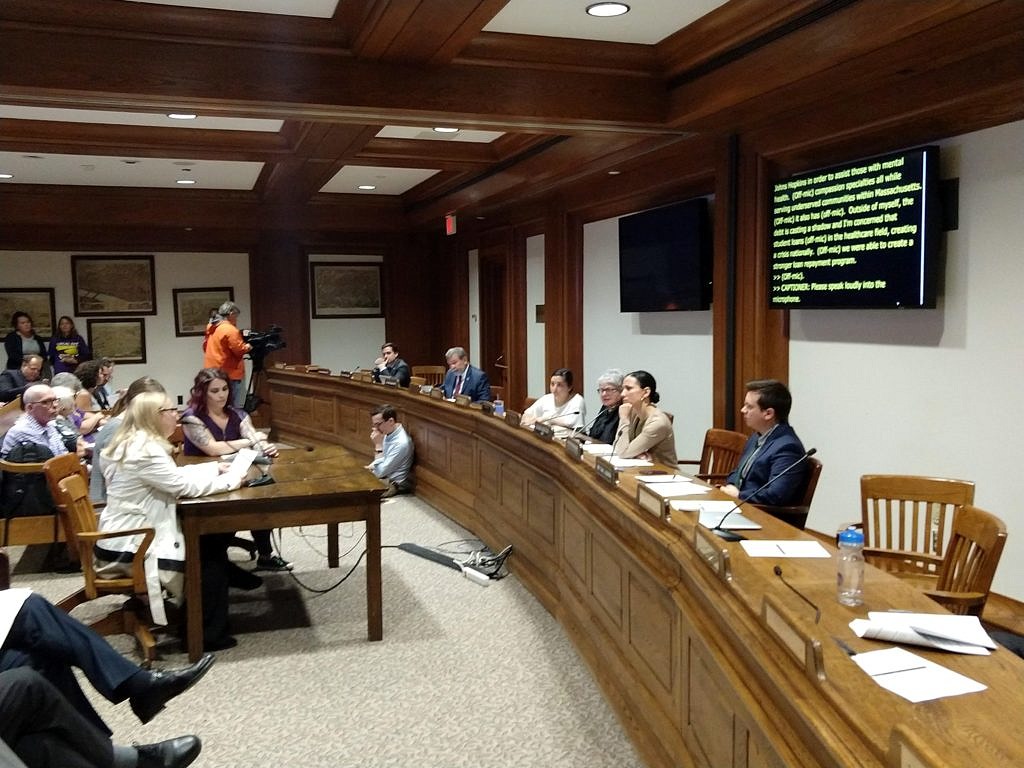
BOSTON — Shannyn Pomeroy dreams of the day when she’ll be able to do the work she loves, supporting adults with developmental disabilities, and also be able to afford a home, a family, and student loan payments.
Right now, though, it’s sometimes hard to see how to turn that dream into a reality.
Pomeroy works full-time as a residential counselor in one of Community Resources for Justice’s group homes. When she’s not working, she’s also a full-time student at Fitchburg State University and plans to transfer to the University of Massachusetts at Amherst to finish her degree in human services. So far, she’s accumulated $37,000 in student loan debt and worries about the added financial strain waiting for her after graduation.
This is not just a job for me; this is what I want to do with my life – help others succeed on their path to success.”
Pomeroy was one of six human service workers who testified at a legislative hearing at the Massachusetts State House, urging lawmakers to create a program to help human service workers pay off student debt over time.
“Those in the human service sector who have dedicated our lives to supporting others shouldn’t suffer due to our desire to be better educated,” Pomeroy told members of the Joint Committee on Children, Families and Persons with Disabilities during the May 28 hearing. “Truly, it is our educational achievement that allows us to provide high-quality services to the women and men in our care.”
A bill currently before the committee would create a state-administered program that would allow full-time human service workers earning less than $50,000 a year to receive $150 per month for up to four years to help offset the burden of student loan payments. A second bill would narrow the wage gap between community-based human service programs and state-run programs, which provide comparable services but typically pay more.
Pomeroy told legislators that the loan repayment program and increased pay would allow her to continue doing meaningful work, making sure clients get to medical appointments, volunteer in the community, and have the opportunity to participate in fun activities like trips to museums.
“I’m very passionate about my career,” she said. “This is not just a job for me; this is what I want to do with my life – help others succeed on their path to success.”
Read more about the hearing.